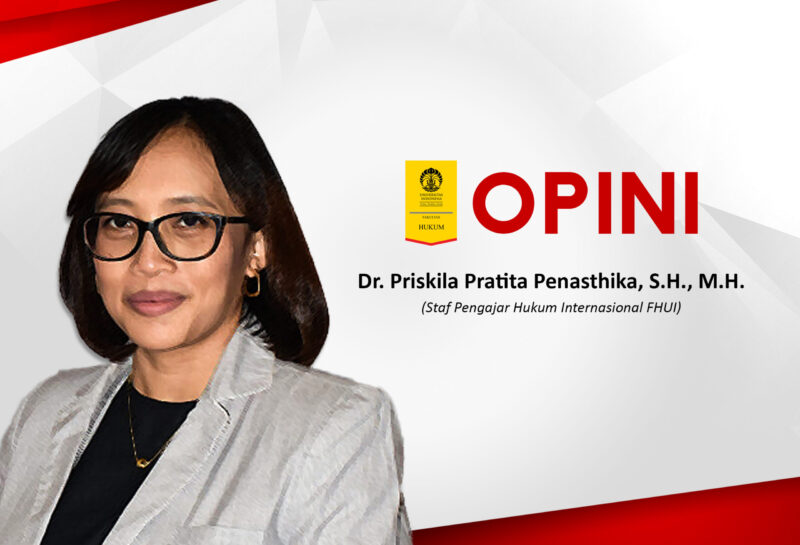Indonesian Accession to the HCCH 1961 Apostille Convention
After almost a decade of discussions, negotiations, and preparations, Indonesia has finally acceded to the HCCH 1961 Apostille Convention. In early January this year, Indonesia enacted Presidential Regulation Number 2 of 2021, signed by President Joko Widodo, as the instrument of accession to the HCCH 1961 Apostille Convention. The HCCH 1961 Apostille Convention is the first HCCH Convention to which Indonesia became a Contracting Party.
In its accession to the HCCH 1961 Apostille Convention, Indonesia made a declaration to exclude documents issued by the Prosecutor Office, the prosecuting body in Indonesia, from the definition of public documents whose requirements of legalisation have been abolished in accordance with Article 1(a) of the HCCH 1961 Apostille Convention.
In accordance with Article 12 of the Convention, Indonesia deposited its instrument of accession to the HCCH 1961 Apostille Convention with the Ministry of Foreign Affairs of the Netherlands on 5 October 2021. The ceremony was a very special occasion because it coincided with the celebration of the 60th anniversary of the Convention. Therefore, the ceremony was part of the Fifth Meeting of the Special Commission on the practical operation of the HCCH 1961 Apostille Convention and witnessed by all Contracting Parties of the Convention.
The Minister of Law and Human Rights of the Republic of Indonesia, Yasonna H. Laoly, joined the ceremony and delivered a speech virtually via videoconference from Jakarta. Minister Laoly voiced the importance of the HCCH 1961 Apostille Convention for Indonesia and underlined Indonesia’s commitment to continue cooperating with the HCCH.
Indonesia’s accession to the HCCH 1961 Apostille Convention brings good news for the many parties concerned. The current process of public document legalisation in Indonesia still follows a traditional method that is highly complex, involves various institutions, and is time-consuming and costly. Because of the accession to the Convention, the complicated and lengthy procedure will be simplified to a single step and will involve only one institution – the designated Competent Authority in Indonesia. Referring to Article 6 of the HCCH 1961 Apostille Convention, in its accession to the Convention, Indonesia designated the Ministry of Law and Human Rights as the Competent Authority. When the HCCH 1961 Apostille Convention enters into force for Indonesia, this Ministry will be responsible for issuing the Apostille certificate to authenticate public documents in Indonesia for use in other Contracting Parties to the Convention.
A Reception Celebrating the 60th Anniversary of the HCCH 1961 Apostille Convention and Indonesian Accession
To celebrate the 60th anniversary of the HCCH 1961 Apostille Convention and Indonesia’s accession to it, an evening reception was held on 5 October 2021 at the residence of the Swiss ambassador to the Kingdom of the Netherlands in The Hague. The reception was organized at the invitation of His Excellency Heinz Walker-Nederkoorn, Swiss Ambassador to the Kingdom of the Netherlands, His Excellency Mayerfas, Indonesian Ambassador to the Kingdom of the Netherlands, and Dr. Christophe Bernasconi, Secretary-General of the HCCH. Representatives of some Contracting Parties to the HCCH 1961 Apostille Convention attended the reception; among other attendees were the representatives from recent Contracting Parties such as the Philippines and Singapore, as well as some of the earliest signatories, including Greece, Luxembourg, and Germany.
The host, Ambassador Walker-Nederkoorn, opened the reception with a welcome speech. It was followed by a speech by Ambassador Mayerfas. He echoed the statement of Minister Laoly on the importance of the HCCH 1961 Apostille Convention for Indonesia, especially as a strategy to accomplish the goals of Vision of Indonesia 2045, an ideal that is set to commemorate the centenary of Indonesian independence in 2045. Ambassador Mayerfas also emphasised that Indonesia’s accession to the HCCH 1961 Apostille Convention marked the first important step for future works and cooperation with the HCCH.
Thereafter, Dr. Christophe Bernasconi warmly welcomed Indonesia as a Contracting Party to the HCCH 1961 Apostille Convention in his speech at the reception. He also voiced the hope that Indonesia and HCCH continue good cooperation and relations, and invited Indonesia to accede to the other HCCH Conventions considered important by Indonesia.
The Entry into Force of the HCCH 1961 Apostille Convention for Indonesia
Referring to Articles 12 and 15 of the HCCH 1961 Apostille Convention, upon the deposit of the instrument of accession, there is a period of six months for other Contracting Parties to the Convention to raise an objection to the Indonesian accession. The HCCH 1961 Apostille Convention will enter into force for Indonesia on the sixtieth day after the expiration of this six-month period. With great hope that Indonesia’s accession will not meet any objection from the existing Contracting Parties to the Convention, any such objection would affect only the entry into force of the Convention between Indonesia and the objecting Contracting Party. The HCCH 1961 Apostille Convention will therefore enter into force for Indonesia on 4 June 2022.
A more in-depth analysis (in Indonesian) concerning the present procedure of public document legalisation in Indonesia and the urgency to accede to the HCCH 1961 Apostille Convention can be accessed here. An article reporting the Indonesian accession to the HCCH 1961 Apostille Convention earlier this year can be accessed here.
Guest post by Priskila P. Penasthika, Ph.D. Researcher at Erasmus School of Law – Rotterdam and Lecturer in Private International Law at Universitas Indonesia.
Source: https://conflictoflaws.net/2021/indonesia-accession-apostille-convention/

